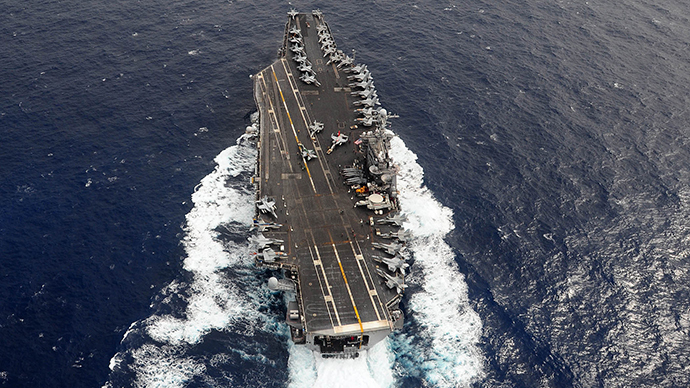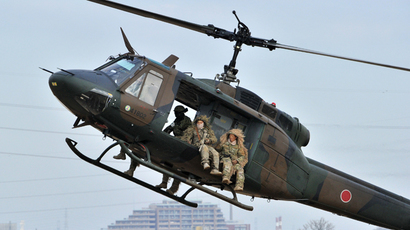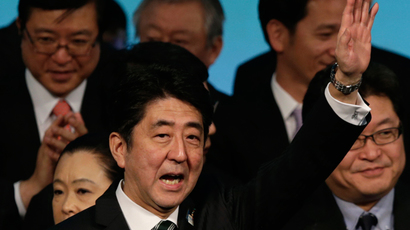Japan indicates US could bring nukes into its territory in case of emergency

Tokyo suggested that it would allow the US to bring nuclear weapons into Japanese territory in the event of a serious threat to its security.
In a briefing with lawmakers, Japanese Foreign Minister Fumio Kishida outlined conditions that would lead Prime Minister Shinzo Abe’s government to make exceptions to Japan’s longstanding posture against possessing, producing, or allowing nuclear weapons within the nation’s borders, Kyodo News reported.
Kishida said the Abe administration adheres to the policy of its predecessor: Whether or not Japan would "adamantly observe the (non-nuclear) principles despite threats to people's safety depends on the decision of the administration in power."
"The future cannot be determined in advance," Kishida said, echoing comments by former Foreign Minister Katsuya Okada of the current opposition Democratic Party of Japan. In 2010, Okada disclosed that Japan and the US had agreements during the Cold War era in which Tokyo would allow the US to bring nuclear-armed submarines into Japanese ports in an apparent violation of the non-nuclear policy. The agreement expired in the early 1990s, upon the end of the Cold War.
Abe said last month it was a “mistake” that previous administrations led by his Liberal Democratic Party avoided acknowledging secret US-Japan pacts that had been declassified in the United States.
Kishida’s comments come amid heightened tensions between Japan and China thanks to a heated territory dispute in the Pacific. Last week, US Secretary of State John Kerry met with Kishida to stress that the US will support Japan in the conflict.
Late last year, China declared a portion of the East China Sea between Taiwan and Japan to fall within its exclusive economic zone, infuriating Japanese officials who had long considered that region to be within their control. In an almost immediate response, the US mobilized in the region and sent surveillance craft and B-52 bombers over the air defense zone in defiance of China’s wishes.
The two countries have further clashed in their respective claims to a small group of islands, known as Senkaku in Japan and Diaoyu in China.
"I... underscored that the United States remains as committed as ever to upholding our treaty obligations with our Japanese allies,” Reuters quoted Kerry as saying, referencing the Treaty of Mutual Cooperation and Security between both nations signed in 1960.
"The United States neither recognizes nor accepts China's declared East China Sea [Air Defense Identification Zone] and the United States has no intention of changing how we conduct operations in the region," he added, according to the Associated Press. "We are deeply committed to maintaining the prosperity and the stability in the Asia-Pacific. And that won't be possible without respect for international law, including freedom of navigation and overflight.”
The US has numerous military bases in Japan and across the region, and would be obligated to provide military assistance under the mutual cooperation treaty should China launch a strike in an attempt to strengthen their hold on the disputed territory.














